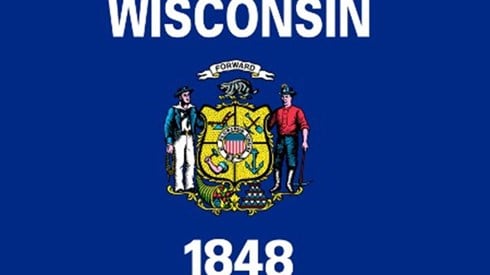OOIDA Risk Retention Group Battles for LRRA Preemption in Georgia

April 09, 2018

Risk retention groups (RRGs) have defended their right to do business in the face of state overreach and added regulation on multiple occasions. Frequently, these cases center on whether the federal Liability Risk Retention Act of 1986 (LRRA) preempts state law.
In the latest pending LRRA preemption battle, Reis et al. v. OOIDA Risk Retention Group, Inc., No. S18A0505 (Ga. 2018), was argued before the Georgia Supreme Court on March 5, 2018. The Court of Appeals transferred the case to the Georgia high court on the "constitutional" issue of federal preemption after both parties to the case filed briefs in the appellate court.
The original civil case stemmed from an incident that took place on Feb. 8, 2015, where the plaintiffs, Candace Reis and Melvin Williams, were in a car struck by a 2001 freight liner owned by defendant James Powell and insured by the RRG, OOIDA. Because Georgia law allows for direct action by injured parties against an insurer, OOIDA was included in the civil suit by virtue of its providing general liability to the insured.
OOIDA's lawyers argued that RRGs are not subject to state direct action statutes because they are preempted by the LRRA. Georgia Superior Court of Newton County Judge Samuel D. Ozburn agreed that the LRRA preempts Georgia state law and granted OOIDA's motion for summary judgment on April 30, 2017.
Judge Ozburn's decision stated that "OOIDA is a foreign risk retention group and not an 'insurance carrier' as contemplated by the direct action statute, and as a result, is not subject to suit under this statute." The trial court's decision also specified that the LRRA preempts Georgia state law and OOIDA is exempt from "the latitude afforded injured litigants under Georgia's direct action statute, to name the motor carrier's insurer in the lawsuit."
The plaintiffs appealed the trial court's decision, and on Nov. 13, 2017, the Court of Appeals of the State of Georgia in Atlanta filed a decision transferring the case to the Georgia Supreme Court, which "determined that preemption cases invoke its constitutional question jurisdiction."
During the appeals process, the plaintiffs' attorneys asked the court to overturn the decision and "limit the application of the LRRA to the purpose intended by Congress upon its enactment." Attorneys for OOIDA argued in a brief that "[b]ecause the LRRA preempts regulation of foreign risk retention groups by non-chartering states, and because the Georgia Direct Action Statutes clearly constitute both direct and indirect regulation of OOIDA's business operations in conflict with the LRRA, OOIDA is not a proper party to this case. Additionally, OOIDA is also entitled to judgment in its favor because the Georgia Direct Action Statutes do not contemplate foreign risk retention groups and must be strictly construed."
The National Risk Retention Association (NRRA) filed an amicus curiae brief on behalf of OOIDA RRG. The Georgia case is noteworthy because neither the plaintiff nor the defendant could file a supplemental brief before the Supreme Court. In fact, the only new brief received was NRRA's.
In the brief, NRRA reiterated the original intent of the Product Liability Risk Retention Act of 1981 and the LRRA. Both laws were designed to promote the growth of RRGs, which NRRA defined in its brief as a "unique type of insurance carrier." NRRA's brief also argued that "OOIDA is permitted, as a foreign RRG in Georgia, to insure its members within this state, exempt from nearly all Georgia state laws regulating the business of insurance." NRRA further advised that there are 109 RRGs registered to offer liability insurance products in Georgia.
NRRA Board Chair Michael J. Schroeder said in a statement that NRRA is committing to responding whenever an RRG's right to do business under the LRRA faces interference from or discrimination by state regulatory agencies.
"NRRA has been a staunch advocate for risk retention groups whenever states fail to recognize the ways in which the Liability Risk Retention Act preempts state statutes," Mr. Schroeder said. "It is our contention that OOIDA is permitted, as a foreign RRG in Georgia, to insure its members within this state, exempt from nearly all Georgia state laws regulating the business of insurance. NRRA will continue to support OOIDA, our members, and all RRGs whenever we see evidence of regulatory overreach."
Buoyed by multiple amicus curiae briefs from NRRA, the RRG industry has won a series of legal cases that demonstrate courts are recognizing that the LRRA preempts state law. In Speece v. Allied Professionals Ins. Co., 289 Neb. 75, 853 N.W.2d 169 (2014), the Nebraska Supreme Court ruled that the LRRA preempts a Nebraska statute that prohibits arbitration clauses in insurance contracts. Likewise, the Second, Third, Eighth, Ninth, and Eleventh Circuits have heard cases on the LRRA and have provided opinions stating that the law is "broad," "expansive," and "sweeping."
April 09, 2018



